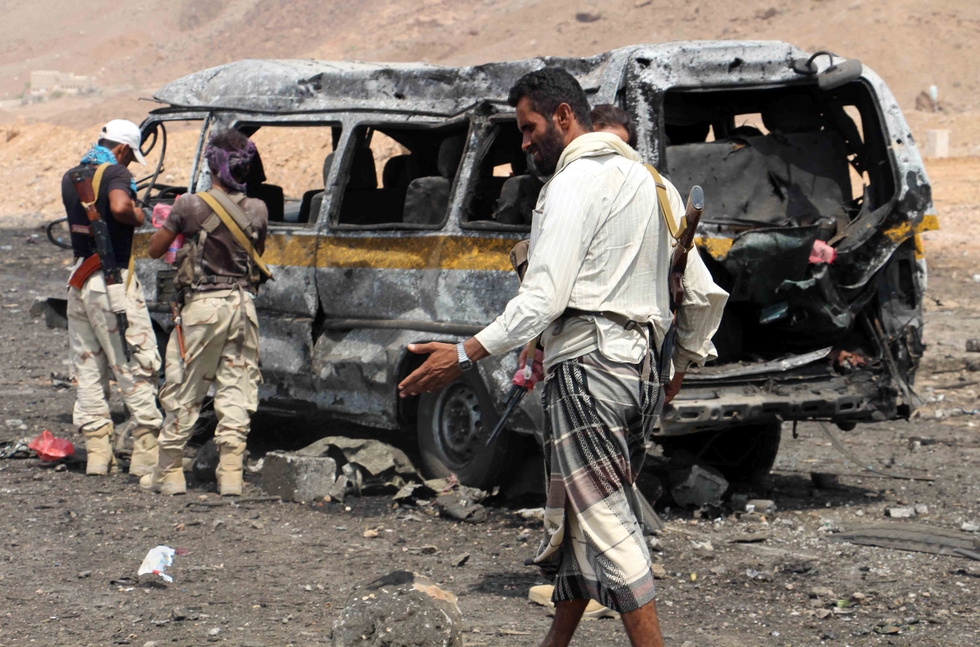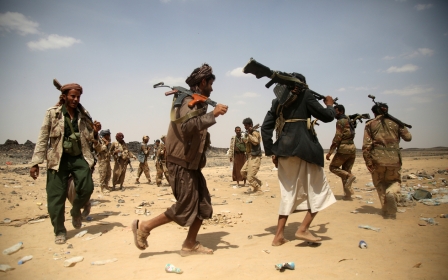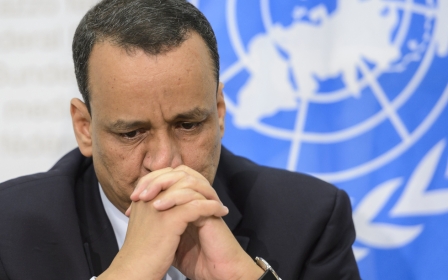Saudi coalition and Houthis breaking international law in Yemen: UN

A confidential UN report concludes that the Saudi-led coalition fighting in Yemen deliberately bombed a house, killing four children, and that Houthi rebels used civilians as shields to avoid attacks.
The actions amount to violations of international humanitarian law, according to the report by a panel of experts obtained by AFP on Thursday.
"The panel has documented violations of international humanitarian law and international human rights law committed by the Houthi-Saleh forces, the Saudi Arabia-led coalition and forces affiliated to the legitimate government of Yemen," said the report presented to the Security Council.
The experts are conducting detailed investigations of four air strikes allegedly carried out by the Saudi coalition, three of which are still ongoing.
In the fourth case, six people including four children were killed when the coalition bombed a village house in southern Lahj Province on 25 May using precision-guided munitions.
"It is almost certain that the civilian house was the deliberate target of the high explosive aircraft bombs," the report said.
The panel concluded that the coalition failed to take precautions and "thus violated IHL," or international humanitarian law.
The coalition began the air campaign in March 2015 to push back Houthi rebels after they seized the capital Sanaa and other parts of the country.
The Saudi-led alliance has repeatedly denied that it has deliberately targeted civilians in the war, which has killed more than 6,400 people.
Houthis 'deliberately endanger civilian population'
In Taiz province, Houthi rebels have concealed their fighters and equipment near or in civilian areas "with the deliberate aim of avoiding attack," the report said.
"In doing so, the Houthis almost certainly deliberately endanger and expose the civilian population and civilian objects to the perils of conflict," it added.
The report showed a photograph of a tank parked at Taiz University and said it was investigating several reports of civilian sites used as shields.
While the war grinds on, Yemen's Central Bank is suffering a major hemorrhage of cash.
About $100m per month is being diverted to support the Houthis, who have gained access to the reserves, the report said.
Yemen's foreign reserves have dwindled from about $4bn in November 2014 to their current critical level of $1.3bn.
Peace talks fail
Yemen's government delegation to peace talks decided to leave host country Kuwait on Monday after the Houthis rejected a draft peace plan proposed by the UN, a spokesman said.
"We are leaving today after having completed our part in the talks," spokesman Mohammed al-Emrani told AFP.
"The ball is now in the rebels' court," he said.
The delegation is returning to Riyadh after informing UN special envoy Ismail Ould Cheikh Ahmed that it was ready to sign the proposed peace plan which the Houthis rejected, Emrani said.
The Houthis and their key ally, former president Ali Abdullah Saleh, rejected the peace plan on Sunday, saying it was incomplete.
"The other party now has the key to make the talks fail or succeed... If they agree to the plan, our delegation will return," Emrani said.
Middle East Eye propose une couverture et une analyse indépendantes et incomparables du Moyen-Orient, de l’Afrique du Nord et d’autres régions du monde. Pour en savoir plus sur la reprise de ce contenu et les frais qui s’appliquent, veuillez remplir ce formulaire [en anglais]. Pour en savoir plus sur MEE, cliquez ici [en anglais].




